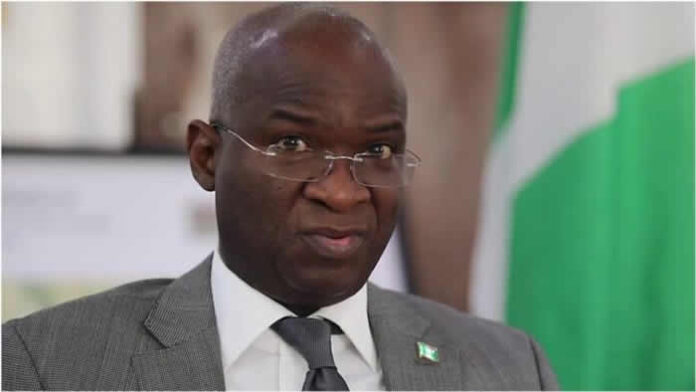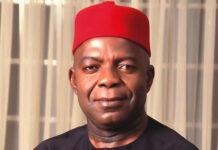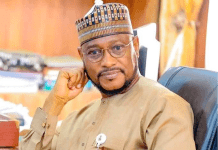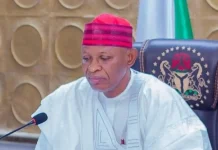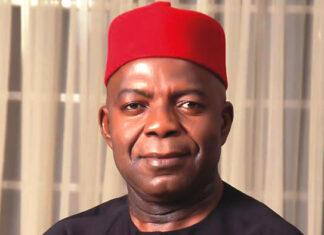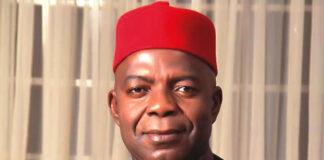Twelve years ago, in his Year 2010 budget presentation to the Lagos State House of Assembly on Tuesday, 3 November 2009, as Governor of Lagos State, Babatunde Raji Fashola, SAN, had said, in part, “…while a lot of work has been done in our attempt to bridge the infrastructure gap and a lot of projects, too numerous to mention will be completed before the end of this year and in the first and subsequent quarters of next year such as schools, health facilities, roads, water supply facilities and so much more. We believe that we are now at the most challenging phase of our journey to a bright and rewarding future.
“For too long, we seem to have evolved survival strategies for dealing with chaotic and unplanned living that we now seem afraid to approach orderly living predicated on law and order.
We are at the point where we must build the most enduring infrastructure. This is the infrastructure of the mind. This is the infrastructure that empowers people to seek new levels of excellence that demands new attitudes that commits to greater ideals. We recognise that while the buildings, schools and roads can be easily pulled down and rebuilt, the human mind is the most difficult to rebuild, although it is the most enduring.”
A rigorous enforcement of the law and multi-dimensional public awareness campaigns followed that declaration and characterised the rest of the administration.
Six years into his assignment as a minister responsible for the renewal and expansion of our country’s infrastructure, he had repeatedly stated a fact: there is no state in the country where the Federal Government is not building or rehabilitating a road or bridge or house, or to use a phrase he had used while governing Lagos State, doing “infrastructure catch-up” with population growth.
Progress has certainly been made.
By 21 June 2021, when he made a presentation titled, “The Politics of Economy and the Economy of Politics: Infrastructure Development; the Progressive Way” at the first APC Youth Conference in Abuja, infrastructure deliverables had shot to 895 ongoing Highway and Bridge projects, internal road rehabilitation in 43 federal tertiary institutions, construction of new Federal Secretariats in six states and rehabilitation/maintenance of 24 Federal Secretariats across the country, construction of housing estates under the National Housing Programme in 34 states, rehabilitation of 41 bridges, scheduled maintenance of 5,461.88Km of roads and 8,000KM of Highway maintenance by FERMA, all across the nation while Government established the first ever National Building Maintenance Policy for the country, leading to the creation of the Department of Federal Public Asset Maintenance (FPAM) with the Ministry.
Earlier in an interview published in African Business of 6 April 2021, Fashola told the magazine’s Publisher Omar Ben Yedder: “The point to make here is that the outline of the infrastructure commitments of this government are very clear now. The wheels are also turning and what people should expect to see is more developments on the ease of doing business. Infrastructure is very important too for enabling and achieving that. We’re refurbishing public infrastructure highways, and we are beginning to build our maintenance economy because it is a very important economy that really has not taken off. This is where we will be, this will be a decade of infrastructure renewal and expansion. It will be an exciting space to play.”
Fashola turns 58 today, and the theme of the Babatunde Raji Fashola (BRF) Gabfest (held yearly in the last five years to commemorate his birthday by discussing the role of the youth in Nigeria’s future) is “Arrive Alive: Building a road towards better driving culture.”
From verifiable data by traffic management authorities, it is becoming clear that with better road infrastructure, motorists now overspeed and are becoming generally less compliant with road safety rules and regulations.
In a recent submission to the Federal Executive Council, Fashola had noted: “Consistently over the years and this data is available, the impact of bad roads and accidents was less than 2%. As big as that may be, it is less than 2%. (Whereas) overspeeding, loss of control, wrongful overtaking cumulate to over 70%.” This is huge.
For Fashola, this cannot be overlooked; the numbers must be drastically brought down. For him, it is time again to focus on building the infrastructure of our minds.
As he puts it further in that submission “our focus as a government is that we’ve agreed that the driver has a role to play, starting from education and certification….”
Thankfully, the Federal Government has recently inaugurated the National Road Safety Advisory Council with Vice President Prof Yemi Osinbajo, SAN, as chair, to “ensure the effective implementation of the Nigerian Road Safety Strategy Version 2, 2021-2030, which centres on a safe system approach to road safety based on global standards,” to quote the Corps Marshal of the Federal Road Safety Corps (FRSC), Dr Boboye Oyeyemi.
Besides education and certification, which will be executed by the Ministries of Education and Information, FRSC, state and local governments, Fashola has noted that installation of road traffic signs and patrol of the highways will be intensified. So also, it is a good development that one of the key elements of the recently signed National Health Act is the development of emergency life support system. As Fashola noted: “Road traffic crashes happen everywhere in the world. The problem is: can you bring it down? and should a road traffic crash lead to death? So, emergency life support is critical.”
Fashola has, over the years, demonstrated that law and order have a human face and could be imbibed as societal norm through the cross-pollination of education and enlightenment, in addition to effective law enforcement and a transparent justice system. This means that both those who enforce law and order and the populace among whom they are enforced must come to a clear understanding and agreement as to their necessity in the growth and development of the society.
In 2017, Fashola told the executives of The Guardian Newspapers in an interview. “When failures happen in developed societies, they call them scandals. When the parliamentarians in the United Kingdom were found stealing funds and all that, they called it ‘Political Expenses Scandal’. When Lionel Messi was involved in tax evasion, they called it Tax Evasion Scandal. The reason is that they have focused so much on law and order that non-compliance is the exception. Society is (definitely) scandalized by non-compliance.”
With hope, this 5th edition of BRF Gabfest will come up with ideas and workable solutions on how to build the infrastructure of the minds of motorists and other road users.
Fatalities on our Roads have to be an exception not the Rule.
It is obvious that BRF is scandalized by every single life that is lost to road crashes. GABFEST 5 is a call for action to end it.
Somehow, BRF himself may have thrown up one consideration for the Gabfest participants because just last week while hosting a delegation of the FCT Council of the Scout Association of Nigeria in his office, he spoke very strongly about the urgent need to resuscitate the various youth clubs and associations which formed the building blocks of societal values and ideals in the past such as the Boys Scout Movement, the Girl Guides and the Boys’ Brigade.
He told the delegation: “I am particularly enthused to have you here today because you represent a critical building block of society, a block that builds values and morality for young men and women that society seems to have left behind. The block has to be repositioned very urgently as a cornerstone of rebuilding of our nation, as a nation, not only of a high human resource capacity but of a human resource that has the highest value and morality.
Urging the association to work with other affiliates like the Girl Guides and the Boys Brigade, among others, Fashola said that such collaboration was necessary in order to give young people the choice to join noble, moral clubs to expend their energy, to build their optimism and dream great dreams, adding that if those clubs were not available, they would be recruited by other clubs with less noble intentions.
For Fashola, finding practical ways to restore positive values among Nigerians would be the best 58th birthday gift.
● Mr Hakeem Bello, FNGE, is Special Adviser, Communications
to the Hon. Minister



